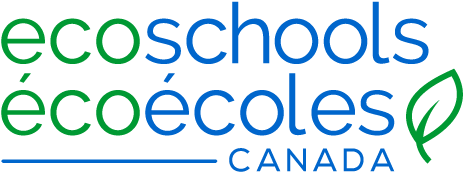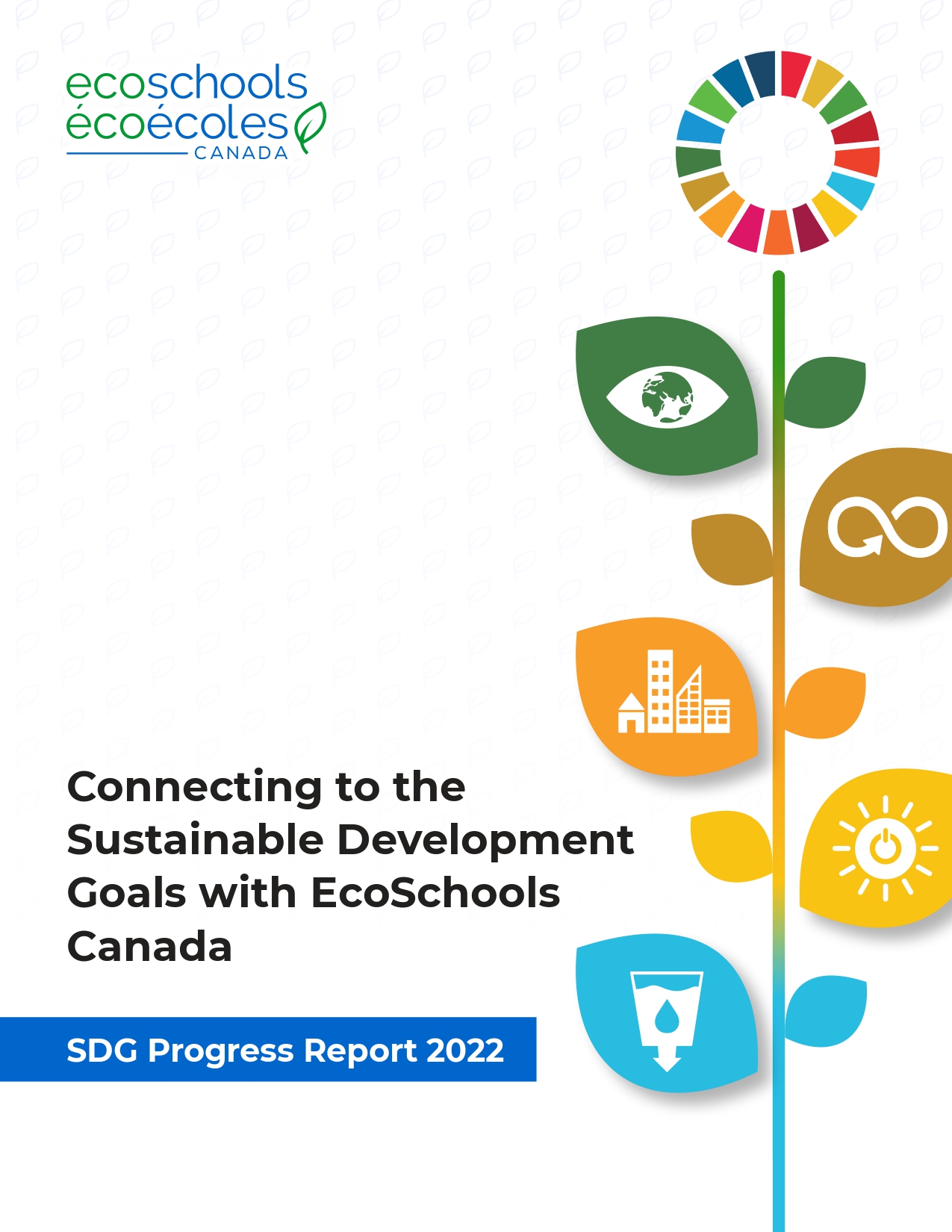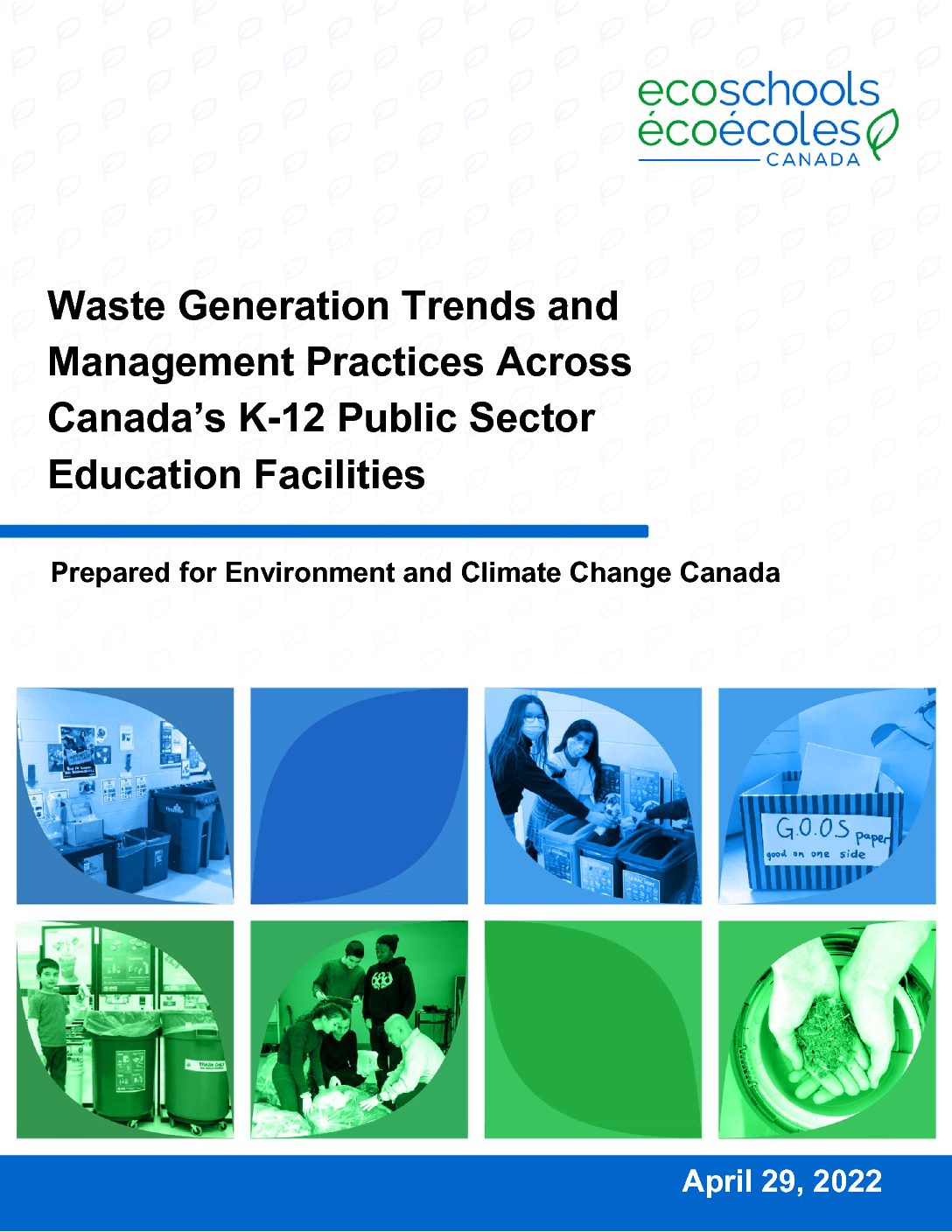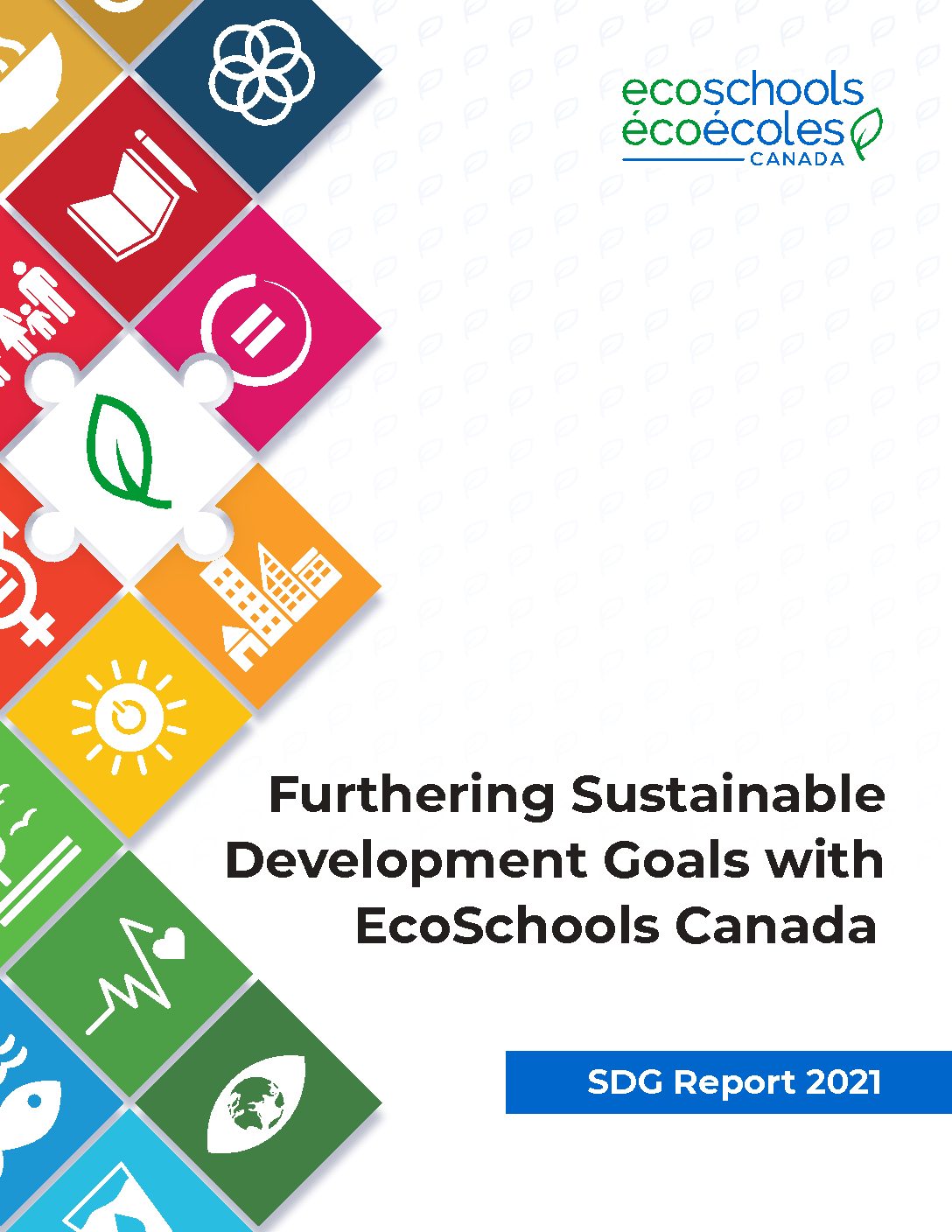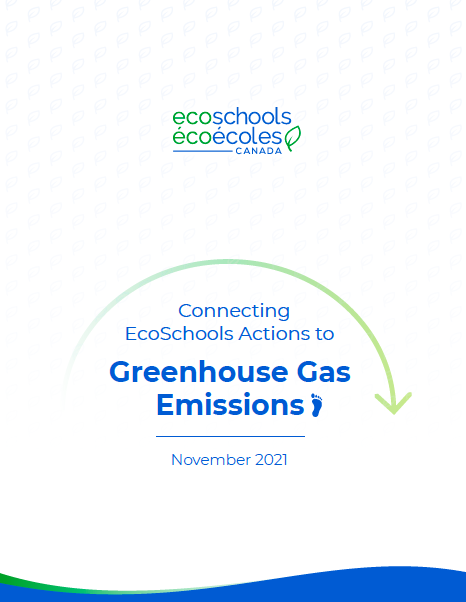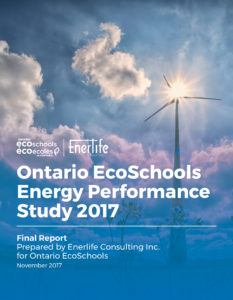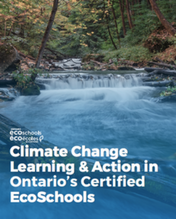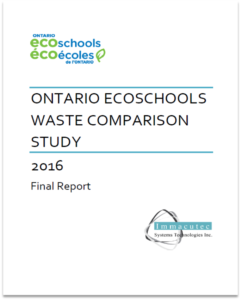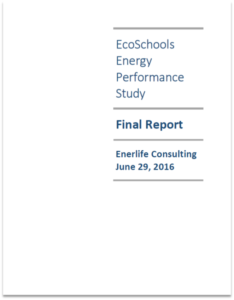Research & Publications
Interested in including EcoSchools Canada in your research, study or publication?
Reach out to us with your request.
Many of the reports and publications on this page were conducted prior to EcoSchools Canada’s establishment as a national entity in July 2019. Therefore, information references EcoSchools Canada’s previous name “Ontario EcoSchools”, and all relative data refers to schools and institutions within the context of Ontario between 2005 and 2019.
This progress report provides an update on the contribution of the EcoSchools Canada program to the United Nations’ Sustainable Development Goals (SDGs). The report includes key statistics and identified success stories from schools from coast to coast to coast during the 2021-22 school year. To learn more about how EcoSchools Canada is contributing to the Sustainable Development Goals please see our initial report, Furthering Sustainable Development Goals with EcoSchools Canada.
This report outlines how EcoSchools took action to reduce the carbon footprint of their school communities and raise awareness of sustainable transportation and low-carbon commuting options during the 2022-23 school year. The report also features the 2023 EcoSchools EcoSummit and its events that focused on the topic of low-carbon commuting, one of the conference’s four key themes.
This best practices guide is derived from an EcoSchools Canada study commissioned by Environment and Climate Change Canada. This study analyzed waste audit data and survey responses from schools across Canada and had input from regional, provincial, and national organizations supporting schools in waste management. The guide is an overview of key highlights and identified best practices from the waste study, to help guide school boards/districts and schools in achieving their waste diversion and reduction goals.
This report, prepared for Environment and Climate Change Canada, provides detailed waste information from Canadian public schools to broaden the understanding of waste generation trends and management practices across K-12 schools. For this study, waste audit data from key material categories like plastic and paper packaging and food waste was analyzed alongside survey responses from schools across Canada. Additional input was provided by regional, provincial, and national organizations supporting schools in waste management.
This report explores how participation in the EcoSchools Canada program contributes to the Government of Canada’s achievement of the global Sustainable Development Goal targets for 2030.
Participation in the EcoSchools program directly contributes to furthering the targets outlined in the following goals; Clean Water and Sanitation; Affordable and Clean Energy; Sustainable Cities and Communities; Responsible Consumption and Production; and Climate Action.
This report details how schools’ participation in the EcoSchools Canada program enables the collection and measurement of key sustainability data in partnership with Arc Skoru. Specifically, by converting the data submitted by schools through the EcoSchools Certification Application (ECA) into GHG reduction estimates, we are able to report on the individual and collective impact of school communities.
In 2016 and 2017, Enerlife Consulting, a green building performance consulting firm, worked with EcoSchools to provide third-party analysis of the energy performance of certified EcoSchools compared to non-certified schools in Ontario. The studies found that certified EcoSchools (elementary and secondary) are more energy efficient than non-certified schools, and that the difference in energy efficiency of the two groups of schools is statistically significant*.
*Note that TDSB schools are not included in the studies.
The 2017 Climate Change Learning & Action in Ontario’s Certified EcoSchools report details the research conducted by Ontario EcoSchools and marks the end of a multiyear Climate Leadership project carried out by EcoSchools. This report finds that the EcoSchools program is well-positioned to facilitate the integration of climate change learning and action throughout school communities, and makes six recommendations for moving forward on climate change education.
The Waste Comparison Study done in 2016 was conducted by Immacutec Systems Technologies Inc., an independent waste audit consultant. The study found a statistically significant difference between both the Combined Landfill and All Waste output per student of elementary Platinum and Non-EcoSchools. Platinum EcoSchool students on average produce 57% less combined landfill waste than Non-EcoSchool students. These findings suggest that participation in the EcoSchools program is associated with lower landfill inputs and total waste generation per student.
The Energy Performance Study done in 2016 was conducted by Enerlife Consulting, a green building performance consulting firm. The goal of the study was to compare the energy efficiency of elementary and secondary EcoSchools and non-EcoSchools. The study found that on average, EcoSchools tend to be more energy efficient than non-EcoSchools, with the efficiencies being higher in natural gas performance than electricity. The results suggest that even though students have a limited ability to influence energy use throughout the whole school, their behavioural actions are still having effect which could potentially be amplified with the collaboration of principals and administrators.
The “Get Inspired” book, published in 2015, is a compilation of the most exciting, innovative, and foundational eco-initiatives from certified Ontario EcoSchools. The publication was created in-house to commemorate the 10 year anniversary of the program, and shared widely with the school communities that were featured in the book.
